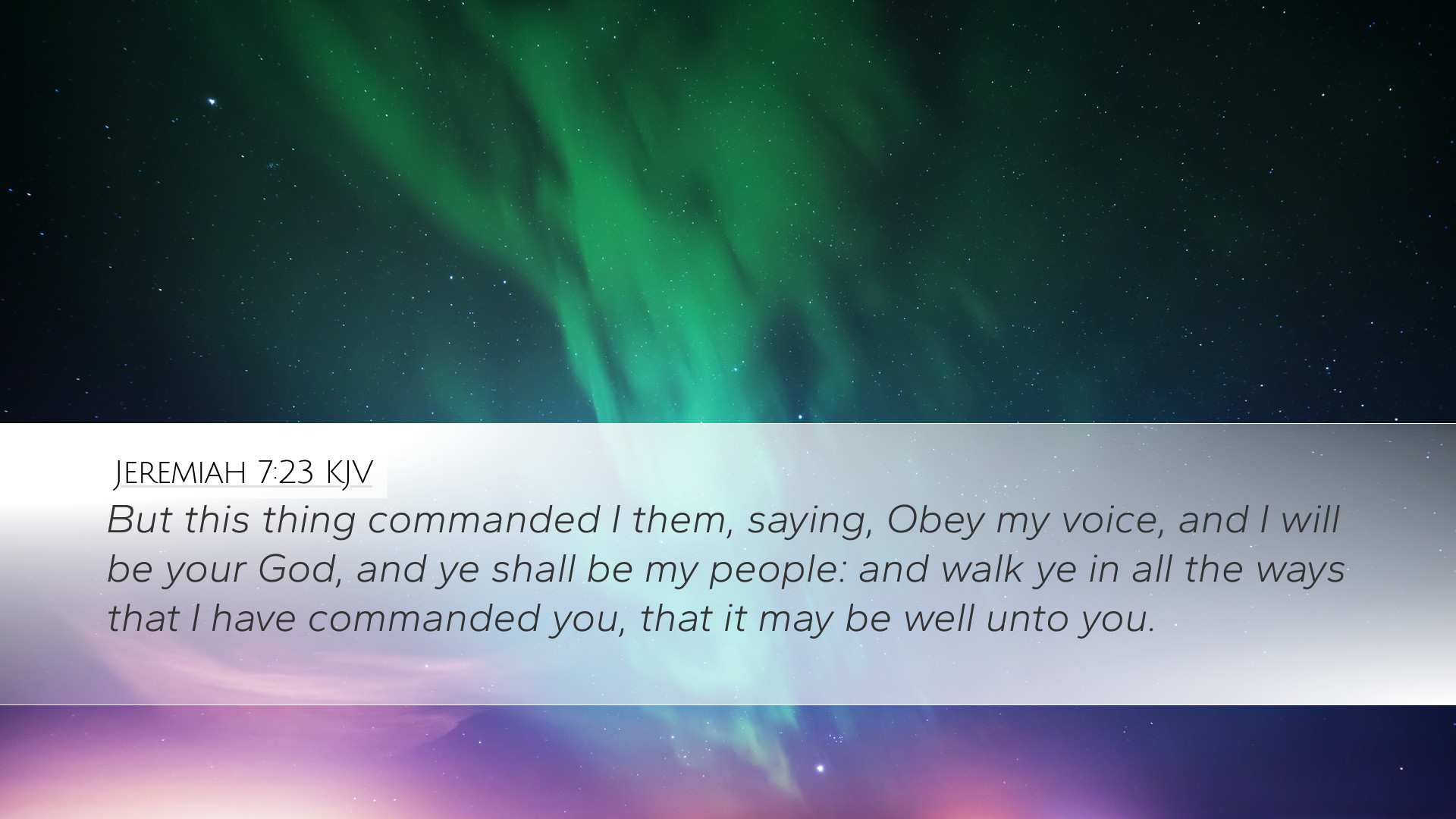Commentary on Jeremiah 7:23
Text of Jeremiah 7:23: "But this command I gave them: 'Obey me, and I will be your God and you will be my people. Walk in all the ways I command you, that it may go well with you.'
Introduction
This verse from the book of Jeremiah serves as a critical reminder of the covenant relationship between God and His people. It emphasizes obedience as the pathway to experiencing God's blessings. The following commentary draws insights from significant public domain sources, highlighting the theological implications and practical applications of this exhortation.
Contextual Background
Jeremiah's ministry occurred during a tumultuous time in Judah's history, marked by moral decay and impending judgment. The prophet was called to warn the people about the consequences of their idolatry and rebellion against God's commandments. This verse encapsulates God's desire for His people to return to Him and maintain a faithful relationship.
Overview of the Command
In this command, God stipulates a simple but profound requirement: obedience. This is not merely about following rules but encompasses a relational aspect where God desires His people to walk in alignment with His ways.
Theological Insights
The Nature of God’s Command
Matthew Henry emphasizes that God's commands are not burdensome but are grounded in His love for His people. He notes that obedience is a manifestation of a genuine relationship with God. The call to obey is a call to trust in God's wisdom and goodness.
Covenantal Relationship
Albert Barnes highlights the importance of the covenant established between God and Israel. The stipulation of obedience hinges on the reciprocal nature of this relationship. God promises to be their God, but this promise is contingent on their faithfulness to Him. Barnes points out that the assurance of God’s identity as "your God" reveals the intimate nature of this covenant.
Walking in God’s Ways
Adam Clarke elaborates on the metaphor of "walking" in God’s ways. Walking symbolizes a continuous and active engagement in a lifestyle that reflects obedience. Clarke argues that it resonates with the idea of living out one's faith in every aspect of life. This walking signifies a daily commitment to live according to God’s commandments, which leads to well-being and favor.
Practical Applications
- Encouragement for Personal Obedience: This verse serves as a personal exhortation to individuals to reflect on their own lives and their dedication to God's commands. It urges self-examination regarding areas of disobedience and encourages repentance.
- Congregational Responsibility: Pastors and church leaders are called to remind congregations of the importance of living obediently to God's word. They must facilitate a culture that emphasizes both worship and ethical living.
- The Role of Obedience in Relationships: As believers, following God's commands influences our relationships with one another. Obedience fosters a community that reflects God's love and peace.
Conclusion
Jeremiah 7:23 encapsulates a foundational truth about the relationship between God and His people – that obedience is vital to experiencing God's blessings. The insights from Matthew Henry, Albert Barnes, and Adam Clarke reveal the depth of this command and its implications for believers today. In a world prone to distraction and disobedience, a return to God’s commandments is not only necessary but profoundly rewarding.


